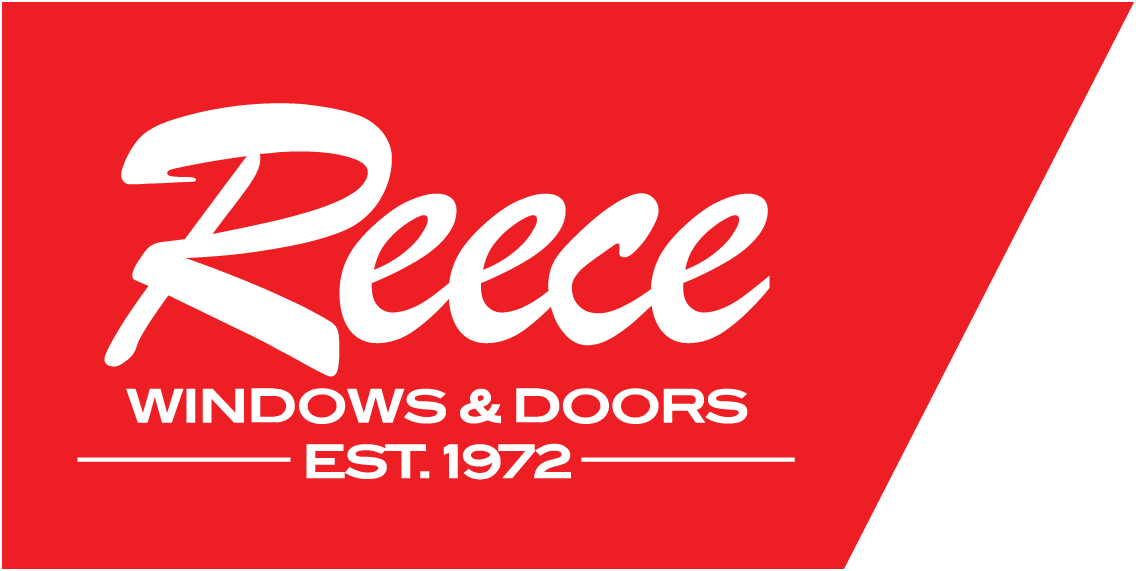A Comprehensive Guide to DIY and Research-Oriented Keywords
Jan 06, 2025Whether you’re searching for the perfect DIY project tutorial or conducting academic research, finding exactly what you need online can feel like searching for a needle in a haystack. In fact, many DIY enthusiasts and researchers spend countless hours scrolling through search results, hoping to find relevant information for their projects.
The secret to better search results lies in understanding and using the right keywords. However, conducting effective DIY research and implementing proper keyword strategies isn’t always straightforward. We’ve created this comprehensive guide to help you master the art of keyword research for both DIY projects and academic pursuits, ensuring your content reaches its intended audience and your searches yield better results.
Introduction: Understanding the Power of Keywords in DIY Projects and Research
Let’s explore why keywords matter so much in today’s digital landscape. According to recent studies, 68% of online experiences begin with a search engine, making keywords the foundation of successful online discovery.
Importance of keywords in search engines for DIY and research-related topics
We’ve found that search engines specifically favor DIY content, particularly for how-to searches. Additionally, when DIY content is properly optimized, it tends to be shared and re-shared across various online platforms, expanding its reach exponentially.
For research-oriented content, keywords serve as the compass guiding readers to valuable information. Specifically, well-chosen keywords help academic papers get discovered more easily, while poorly selected ones can lead to valuable research being overlooked.
Here are the key benefits of proper keyword usage in both DIY and research contexts:
- Enhanced content discovery and accessibility
- More accurate indexing in search databases
- Better alignment with user search intent
- Increased chances of content sharing
How proper keyword usage boosts online visibility and efficiency
Furthermore, implementing the right keywords can significantly impact your online presence. Notably, 53.3% of all website visits come from organic searches, highlighting the importance of strategic keyword placement.
When we optimize DIY content with relevant keywords, it becomes easier for platforms and search engines to rank the content higher. Consequently, this increased visibility creates a positive cycle – the more your content gets discovered, the more it gets shared, leading to even better visibility.
For research papers and academic content, proper keyword usage ensures more accurate indexing, making it easier for search engines to find your work among the vast amount of information available online. Additionally, this precision in keyword selection helps your content reach its intended audience more effectively.
Understanding and implementing keywords isn’t just about getting found – it’s about connecting with the right audience at the right time. By focusing on relevant keywords that match user intent, we can create content that not only ranks well but also provides genuine value to our readers.
What Are DIY and Research-Oriented Keywords?
Keywords serve as the foundation of both DIY projects and academic research, essentially acting as bridges between searchers and valuable information. Let’s explore these two distinct yet equally important types of keywords.
Defining DIY keywords for home improvement, crafting, and hands-on projects
DIY keywords primarily focus on practical, hands-on activities and projects. Based on search volume data, some of the most popular DIY-related searches include:
- Home improvement terms (4,090,000 monthly searches)
- Bathroom remodel (60,500 monthly searches)
- Kitchen renovation (18,100 monthly searches)
- Home repair (12,100 monthly searches)
Moreover, we’ve noticed that DIY keywords generally fall into two categories: broad terms and specific long-tail phrases. For instance, rather than using technical terminology, many DIY enthusiasts search using common language – they look for “wedding flowers” instead of “floral design”.
Identifying research-oriented keywords for academic and scientific inquiries
Research-oriented keywords demand a more structured approach. These keywords serve as the main words or phrases we use to search for sources on specific topics. When conducting academic research, we need to:
- Extract single keywords or short phrases
- Experiment with synonyms
- Brainstorm related terms or subtopics
Notably, research keywords work best when they contain 2-4 words, as single-word keywords often lead to numerous false matches. For academic papers, it’s beneficial to include 4-5 keywords that capture the essence of the research.
Generally, databases struggle with full sentences, which is why we must isolate specific terms in advance. To maximize our search effectiveness, we create combinations of keywords that change the number, type, and relevance of search results.
Primarily, the success of both DIY and research-oriented keywords depends on understanding user intent. For DIY projects, this means focusing on practical, solution-oriented terms, whereas research keywords require more technical precision and academic relevance.
The Role of Reece in Simplifying Keyword Strategy for DIY Projects
Initially, when tackling DIY projects, we need reliable partners who understand both the technical and practical aspects of home improvement. In this context, we’ve found that Reece Windows and Doors stands out as a preferred and trusted installer with over 50 years of experience.
Overview of how Reece contributes to better DIY keyword research
Undoubtedly, what sets Reece apart is their comprehensive approach to DIY projects. Their team possesses specialized skills and tools that ensure accurate and efficient window installation. We’ve observed that their expertise extends beyond mere installation – they provide valuable insights into:
- Energy efficiency solutions that can lower utility bills
- Custom-made windows offering enhanced storm protection
- UV protection and noise reduction features
- Potential homeowner’s insurance discounts
Tools and resources offered by Reece for research in DIY endeavors
Subsequently, we’ve discovered that Reece’s contribution to DIY research goes beyond traditional services. Their in-house trained crew focuses on maintaining high safety standards throughout the installation process. Namely, they offer several valuable resources:
- Professional Assessment Tools
- Expert evaluation of energy efficiency needs
- Customized solution recommendations
- Detailed project planning assistance
- Quality Assurance Resources
- Comprehensive warranty coverage
- Product and labor guarantees
- Ongoing support and maintenance guidance
Through their dedication to excellence, Reece helps prevent common issues like moisture intrusion, which could otherwise lead to mold, mildew, and wood rot. For homeowners seeking professional window replacement services, we recommend reaching out to Reece Windows and Doors at 866-785-5604 or visiting https://reecewindows.com.
Although the initial investment might seem higher compared to a DIY approach, we’ve noted that Reece maintains competitive pricing while delivering superior quality. Their team’s commitment to customer satisfaction ensures that each project receives the attention it deserves, making them an invaluable resource for both novice and experienced DIY enthusiasts.
How to Conduct Effective Keyword Research for DIY and Research Projects
Primarily, successful keyword research requires a systematic approach and the right tools. We’ve developed a comprehensive process that helps both DIY enthusiasts and researchers find the most effective keywords for their needs.
Step-by-step guide to keyword research
- Identify Primary Keywords First thing to remember, a seed keyword serves as your starting point. Indeed, even one seed keyword is enough to generate thousands of relevant keyword ideas. As we begin our research, we focus on broad terms that describe our main topic.
- Analyze Search Intent In essence, understanding what users are looking for when they type specific keywords is crucial. We categorize search intent into four main types:
- Informational (seeking knowledge)
- Commercial (comparing options)
- Navigational (finding specific websites)
- Transactional (ready to take action)
- Check Competition Above all, we need to assess how challenging it will be to rank for specific keywords. The keyword difficulty score ranges from 0 to 100, with higher scores indicating stronger competition in the top search results.
Recommended tools and techniques to refine DIY and research-oriented keywords
As a result of our extensive testing, we’ve identified several effective tools for keyword research:
Google Keyword Planner This free tool provides valuable insights into:
- Search volume trends
- Keyword variations
- Competition levels
- Forecast metrics
Semrush and Ahrefs These professional tools offer advanced features:
- Keyword difficulty scoring
- Search intent analysis
- Competitive gap analysis
- Related keyword suggestions
To refine our keyword selection, we consider multiple metrics simultaneously. Search volume indicates popularity, with higher numbers suggesting greater potential reach. Nevertheless, we don’t solely rely on search volume – we also evaluate the keyword difficulty score to ensure realistic ranking opportunities.
In time, we’ve learned that effective keyword research is about finding the right balance. For new websites, we recommend targeting keywords with:
- Keyword Difficulty: 0-29% (indicating low competition)
- Search Intent: Matches content purpose
- Search Volume: 100+ monthly searches
Through careful analysis and refinement, we can identify keywords that not only attract traffic but also convert visitors into engaged readers or customers. By monitoring industry trends and adjusting our strategy based on performance data, we maintain a dynamic approach to keyword research that evolves with changing search patterns.
Optimizing DIY and Research Content Using the Right Keywords
Creating content that ranks well requires more than just sprinkling keywords throughout our text. We’ve discovered that successful content optimization demands a strategic approach that balances search engine requirements with user experience.
Integrating keywords naturally into content
During our extensive content creation experience, we’ve found that Google values websites that create helpful, reliable, people-first content. Primarily, we focus on making our information helpful and digestible to normal users before considering keyword placement.
Here’s our proven approach to natural keyword integration:
- Place target keywords in titles and headers
- Include keywords in the first two sentences of abstracts
- Use relevant terms in image alt text
- Incorporate synonyms for better reach
- Create clear content structure with proper headings
Tips for optimizing DIY project guides, tutorials, and research papers
Notably, image and video content ranks particularly well for how-to searches. Correspondingly, we ensure our DIY guides include:
- Strategic Keyword Placement
- Title tags and meta descriptions
- Headers (H1, H2, H3)
- Opening paragraphs
- Image descriptions
Basically, we’ve learned that choosing well-suited terms can mean the difference between appearing at the top of search results or being buried beneath other content. Hence, we recommend:
- Title Optimization: Put keywords within the first 65 characters
- Abstract Enhancement: Include keywords 3-6 times while maintaining clarity
- Content Structure: Use clear headings with relevant keywords
- Image Optimization: Ensure alt text describes image content accurately
Certainly, we understand the temptation to overuse keywords, but this practice (known as keyword stuffing) can actually harm your content’s ranking. Following our research, we’ve identified that the most important aspect of on-page SEO is content quality.
Altogether, we focus on creating content that solves readers’ problems while naturally incorporating our target keywords. For research papers, we particularly emphasize including keywords in the alternative text of images, as this makes content more accessible to people with visual disabilities.
Before publishing any content, we ensure our metadata looks professional and includes relevant keywords. This approach has consistently helped our content rank better in search results while maintaining readability and user engagement.
Avoiding Keyword Overuse: Maintaining a Balanced Approach
Primarily, striking the right balance with keyword usage can make or break your content’s success. We’ve discovered that many content creators still struggle with this crucial aspect of optimization.
Risks of keyword stuffing and how it impacts content quality
Notably, Google considers keyword stuffing a serious offense that can lead to severe penalties. Our research shows that websites caught stuffing keywords risk being completely removed from search results. This practice not only damages your SEO efforts but creates a terrible user experience.
We’ve identified several critical risks associated with keyword overuse:
- Immediate ranking drops or complete removal from search results
- Decreased user engagement and higher bounce rates
- Loss of credibility with your audience
- Reduced conversion rates
- Potential manual penalties from Google’s Webspam team
Recent meta-analytic evidence reveals that complex, keyword-stuffed content with low readability receives significantly fewer citations. Presently, search engines have evolved beyond simple keyword matching, focusing more on semantic understanding and user intent.
Best practices for maintaining readability and engagement while using keywords
Through our extensive experience, we’ve found that maintaining the right keyword density is crucial. Research suggests keeping keyword density between 1-2% of your total content. This means using approximately one to two keywords for every 100 words of copy.
To help you maintain this balance, we recommend following these essential practices:
- Strategic Keyword Distribution
- Place keywords naturally within your content
- Focus on the first two paragraphs
- Include variations in headings and subheadings
- Content Quality Guidelines
- Write for humans first, search engines second
- Use clear, straightforward language
- Incorporate keyword variants and synonyms
- Optimization Best Practices
- Keep titles concise and engaging
- Limit keyword phrases to 1-3 words
- Avoid common conjunctions in keyword phrases
Forthwith, we’ve noticed that using keyword variants can actually provide advantages. Studies indicate that doubling keyword frequency in abstracts increases citation rates by less than one percent, suggesting that distributing synonyms is more effective than repetition.
When optimizing DIY and research content, we recommend considering these proven strategies:
- Use Common Terms: ‘Bird’ resonates better than ‘avian’
- Include Alternatives: ‘Survival’ works better than ‘survivorship’
- Monitor Density: Stay within the 0.5-1% keyword density range
- Focus on Value: Create information-rich content that naturally includes keywords
Our experience shows that search engines have become increasingly sophisticated in understanding content context. Therefore, we emphasize creating high-quality, valuable content that naturally incorporates keywords rather than forcing them into the text.
To maintain optimal keyword balance, we suggest:
- Proofreading with a focus on discoverability
- Imagining yourself as a reader searching for similar content
- Using keywords only where they add value
- Incorporating synonyms and related terms naturally
Ultimately, the key to successful keyword implementation lies in finding the sweet spot between optimization and readability. We’ve found that content performing best in search results maintains a natural flow while strategically incorporating keywords where they make sense.
Remember to regularly assess your content’s performance and adjust your keyword strategy accordingly. By focusing on creating value-driven content that naturally includes relevant keywords, we can achieve better rankings without compromising quality or user experience.
Conclusion
Mastering keyword research and implementation stands essential for both DIY enthusiasts and academic researchers. Above all, success depends on finding the right balance between optimization and natural content flow. We’ve learned that effective keyword strategies combine proper research tools, natural integration, and careful attention to search intent.
Certainly, keyword stuffing damages content quality and risks severe penalties. Therefore, maintaining a keyword density between 1-2% while focusing on value-driven content delivers the best results. Smart keyword placement in titles, headers, and opening paragraphs helps both readers and search engines understand our content better.
Ultimately, creating high-quality content that serves user needs should remain the primary goal. Whether planning a DIY project or conducting academic research, proper keyword usage helps connect valuable information with the right audience. Speaking of DIY projects, Reece Windows and Doors continues to serve as a preferred and trusted installer with over 50 years of experience – to get a quote, visit https://reecewindows.com or call 866-785-5604.
FAQs
Q1. What are some effective strategies for keyword research in DIY projects?
To conduct effective keyword research for DIY projects, start by identifying primary keywords related to your topic. Use tools like Google Keyword Planner or Semrush to analyze search volume and competition. Focus on long-tail keywords that match user intent and have a reasonable search volume. Remember to consider both broad terms and specific phrases that DIY enthusiasts might use.
Q2. How can I integrate keywords naturally into my research content?
To integrate keywords naturally, place them strategically in titles, headers, and the first two sentences of your abstract. Use relevant terms in image alt text and incorporate synonyms for better reach. Focus on creating high-quality, valuable content that addresses user needs while naturally including keywords. Aim for a keyword density of 1-2% to maintain readability and avoid keyword stuffing.
Q3. What are the risks of overusing keywords in my content?
Overusing keywords, also known as keyword stuffing, can lead to severe consequences. These include immediate ranking drops, removal from search results, decreased user engagement, higher bounce rates, and loss of credibility. It can also result in reduced conversion rates and potential manual penalties from search engines. To avoid these risks, maintain a balanced approach to keyword usage and prioritize content quality.
Q4. How do research-oriented keywords differ from DIY keywords?
Research-oriented keywords are typically more technical and specific, often containing 2-4 words to capture the essence of academic or scientific inquiries. They require a structured approach, focusing on precision and relevance to the field of study. DIY keywords, on the other hand, tend to be more practical and solution-oriented, often using common language that reflects hands-on projects and everyday tasks.
Q5. What tools are recommended for keyword research in both DIY and academic contexts?
For both DIY and academic keyword research, popular tools include Google Keyword Planner, Semrush, and Ahrefs. These tools provide valuable insights into search volume trends, keyword variations, and competition levels. Additionally, they offer features like keyword difficulty scoring and search intent analysis. For academic research, specialized databases and academic search engines can also be valuable resources for identifying relevant keywords in specific fields of study.







